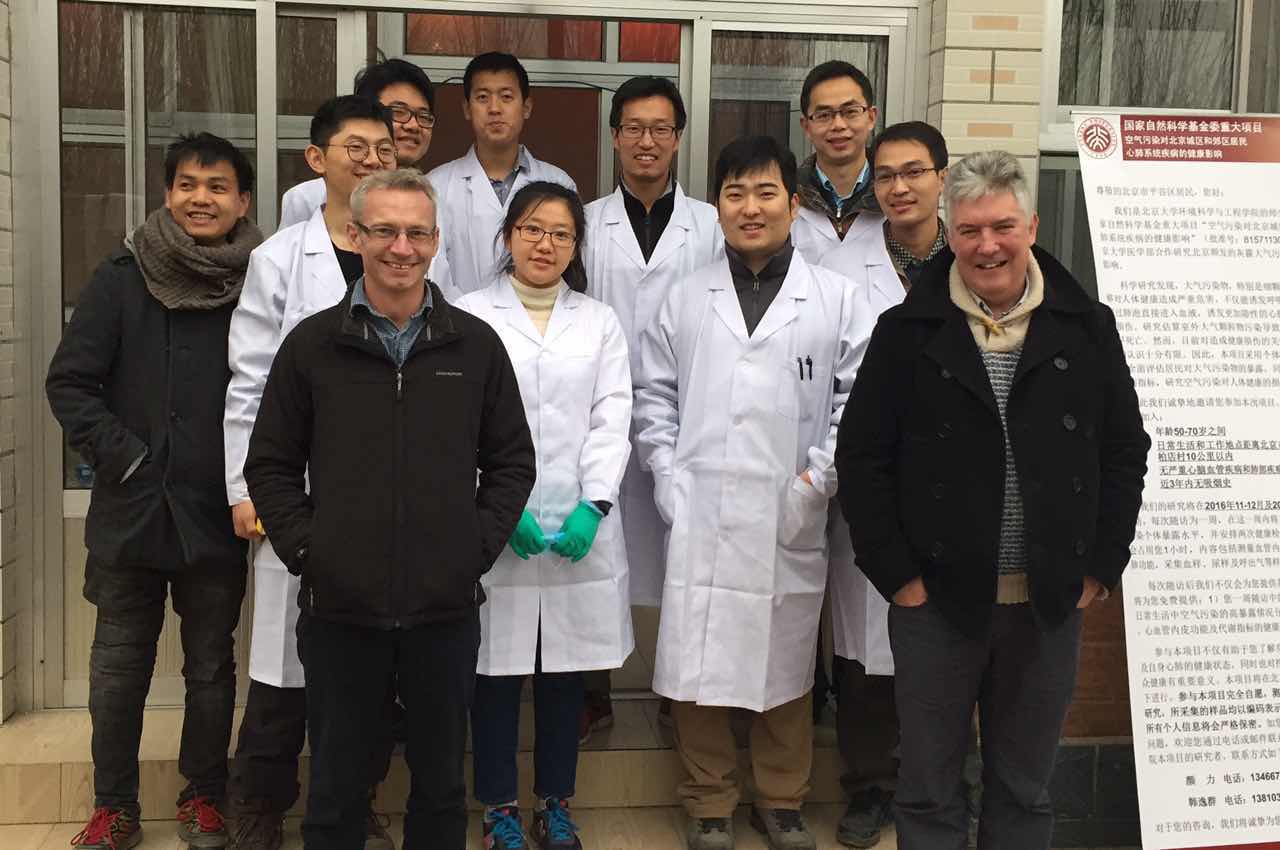

In the last few decades China's rising energy requirements have led to increased air pollution
emissions from coal-fired power plants. Its motorized transport growth is the fastest in the
world with the number of motor vehicles projected to quadruple in the next two decades, reaching
over 380 million by 2030. Meanwhile, nearly half of all Chinese still cook and heat their homes
with highly polluting biomass and coal fuels. The resulting particulate matter (PM)
concentrations in the majority of Chinese cities routinely exceed the World Health
Organization's (WHO) annual Air Quality Guideline of 10 µg/m3 by a factor of 10 or more.
Epidemiologic studies undertaken in China increasingly confirm links between poor air quality
and a range of health risks previously observed in the West. Moreover, they confirm that the
number of Chinese that are vulnerable to air pollution is increasing, as evidenced by a large
and growing burden of disease from chronic non-communicable diseases - such as ischemic heart
disease (IHD), cerebrovascular disease, chronic obstructive pulmonary disease (COPD), and
cancer. Research to enhance the understanding of the impact of environmental exposures on human
health is needed to influence both government policy on pollution and also individual
behaviours. The outcomes of the research described in this proposal will extend our
understanding of the impact of air pollution on human health to a megacity in the world's
largest country and promote evidence-based policies that in turn may greatly improve the health
and quality of life of China's ageing population - both of which are important sustainable
development aims.
Working closely with Chinese scientists we will recruit a panel of 240 subjects from urban and
peri-urban Beijing. Subjects will be recruited from two existing populations cohorts ensuring a
rich source of baseline data and stored samples for access. Across the project period we will
obtain detailed information on the current health status of the subjects, details of the
personal exposure to air pollution and biosamples for biomarker analysis.
This project will serve as a new platform to further enhance the research capacity of the
Chinese teams in air pollution and its impact on health, which will leave a legacy beyond the
project lifetime, thus contributing to the continuous improvement of life and welfare of more
than a billion people.
AIRLESS is an international collaborative project between King’s College London, Imperial
College London, the University of Cambridge and Peking University. It is part of the
“Atmospheric Pollution and Human Health in a Chinese Megacity” programme, which is supporting
five four-year research projects to research air pollution in Beijing. Funding is provided by
the Natural Environment Research Council, the Medical Research Council, the National Natural
Science Foundation of China and the Newton Fund.


Further information http://www.nerc.ac.uk/press/releases/2015/21-pollution/
© Imperial College London, Environmental Research Group. All rights reserved 2020.